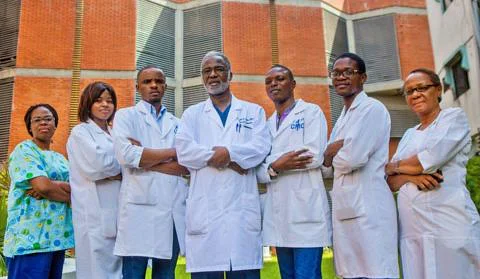By Asmau Ahmad
The United Kingdom’s General Medical Council has licensed fresh 91 Nigerian-trained doctors.
According to reports, the accreditation of the 91 doctors occurred over 15 days between October 10 and October 25, 2022.
Health Reporters learnt that the total number of Nigerian-trained doctors in the UK now stands at 10,387.
There are 5,210 associate specialists, 2,318 doctors in training, 1,837 general practitioners, and 1,273 specialists among the 10,387 doctors.
The accreditation of the 91 doctors came amidst cries by the Nigerian Medical Association (NMA) against the brain drain bedevilling the health sector.
Apart from doctors, other categories of health workers are also migrating.
The statistics also showed that between January 1, 2022, and September 30, 2022, about 1,307 Nigerian-trained doctors were licensed in the UK as Nigeria continues to battle one of the worst situations of brain drain in its history.
However, Nigerian doctors who got medical qualifications in schools outside the country are not included in the data.
The NMA, while lamenting the high rate of medical brain drain, said Nigeria may import doctors in the future.
Nigeria currently has the third-highest number of foreign doctors working in the UK after India and Pakistan.
The National President of the Medical and Dental Consultant Association of Nigeria (MDCAN), Dr Victor Makanjuola, said in the last two years, over 500 consultants have left the services of government hospitals for practice abroad.
“All our government hospitals are consultant-led practices, which is the global standard. We have lost 500 in just two years, and we have found out that those who are more likely to leave are the younger ones.
“To sustain the system and be able to train the next generation of medical doctors and medical students, Nigeria needs to retain the older consultants who are in their 50s and getting close to retirement so that they can stay back and train the next generation of doctors and medical students.
“Otherwise, the disaster of brain drain would be doubled because we would lose the younger ones and the older ones at about the same time, and you would find a system without consultants. This would affect the standard of care and the quality of care given by hospitals,” he said.




